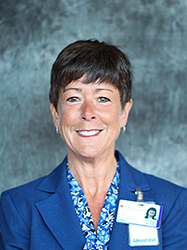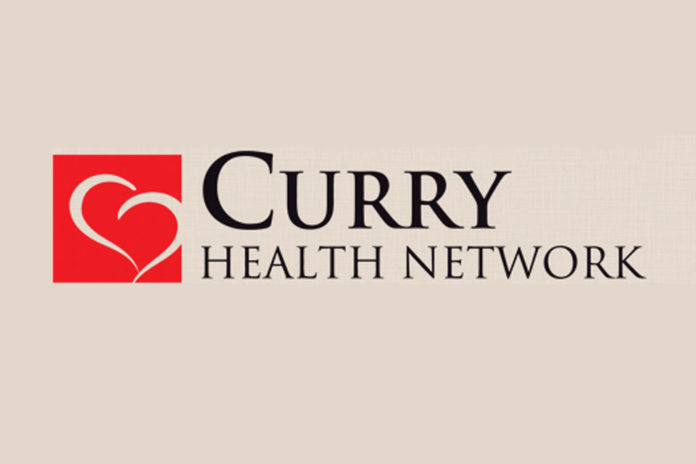Curry Health Network’s CEO, Ginny Razo, is taking a two-pronged approach in the Network’s action plan in response to a letter received April 3, 2018 from Centers for Medicare and Medicaid Services stating CMS has determined Curry General Hospital no longer meets the criteria to retain Critical Access Hospital status, and, if no action is taken, plans to decertify the status in one year.

Critical Access Hospital status is a designation that was created in 1997 in response to a number of closures of rural hospitals in the 1980s and early 1990s. Critical Access Hospital status designation was designed to reduce financial vulnerability of rural hospitals and improve access to healthcare by keeping essential services in rural communities. Critical Access Hospital status designation allows hospitals to receive cost-based reimbursement for Medicare services.
The current actions of CMS were prompted by a 2013 report from the Office of Inspector General that found most Critical Access Hospitals (CAH) would not meet the location requirements if required to re-enroll in Medicare. They recommended that CMS periodically reassess compliance for this location-related requirement, and CMS is doing so for all CAHs in the U.S. upon the hospital’s recertification cycle, every 3-years.
Although there are other requirements to be a designated CAH, the location requirement is to be located more than 35 miles from another hospital. The CMS letter, however, states that because Sutter Coast Hospital’s provider-based clinic in Brookings is less than 35 miles from the hospital in Gold Beach, and because the Network’s clinic in Brookings is less than 35 miles from Sutter Coast Hospital, that the mileage requirement is not met. “It now appears CMS is interpreting those location requirements differently,” Razo said.
It is important to note that when CAH status was granted, a Network clinic in Brookings already existed, was operating, and was licensed under the hospital license. According to CMS, the Sutter clinic was also in existence when Curry General became a CAH.
CMS also allows state authorities to adopt regulations or create a State Rural Health Plan that establishes criteria for Necessary Provider (NP) status for other vulnerable hospitals that did not meet the distance requirements of the federal regulations, allowing them to also be designated as a CAH. The state authority in Oregon that can establish that criteria is the Oregon Health Authority, and that agency delegated that responsibility – in addition to the responsibility to designate the hospitals with NP status as CAHs – to the Office of Rural Health.
In 2004 when Curry General became a CAH, it did not need to be designated as a NP because it met all the federal requirements.
Razo says Curry Health Network will be pursuing two action plans simultaneously, as they each have the same 60-day deadline.
The first approach allowed by CMS is for the hospital to establish that it could have met NP status before January 1, 2006 (a date established by CMS) by providing evidence to that effect. Razo has been working with the Office of Rural Health (ORH) and Oregon Health Authority (OHA) to gather that evidence. Additionally, ORH has stated the agency will offer a letter stating the hospital met the State’s criteria to qualify as a necessary provider before January 1, 2006 and ORH considers the hospital to have been designated as a NP at the time of its CAH certification in 2004. Additionally, OHA has stated they will offer a letter supporting ORH’s determination.
Should the evidence Curry Health Network submit to CMS be accepted, the process ends, and the hospital maintains its CAH status with favorable cost-based reimbursement rates for Medicare and Medicaid.
Should the evidence be denied, the Network can appeal through the federal court system. Because the 60-day deadline for submission of evidence is the same for appeal, Razo is also working to present a strong case on appeal. She has been working with the Governor’s office and the Oregon Association of Hospitals and Health Systems to gain widespread legislative support for Curry Health Network and other CAHs in Oregon and across the U.S. that have been, or will likely be, impacted by CMS’s position on this issue.
“This is not a Curry General Hospital issue”, said Razo. “This is an issue that can potentially affect numerous rural hospitals throughout the country.
“We are aggressively pursuing both courses of action available to us at this time, and are working with legal counsel who is knowledgeable and has experience with this type of situation in order to protect the hospital’s CAH status,” she said. “At the same time, we are also working with our external auditors to evaluate the financial impact of a potential CAH status loss, as well as financial impact if we convert our Brookings clinic to a free-standing clinic or Rural Health Clinic. There are other hospitals going through this same situation, or a similar situation right now – or they will be. This can adversely affect access to health care in rural settings nationwide.”
Please Like, Share and Follow the …


















